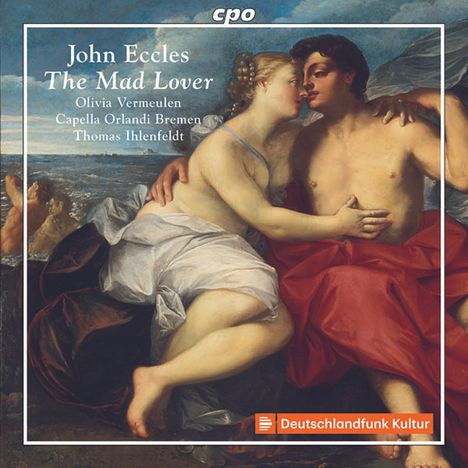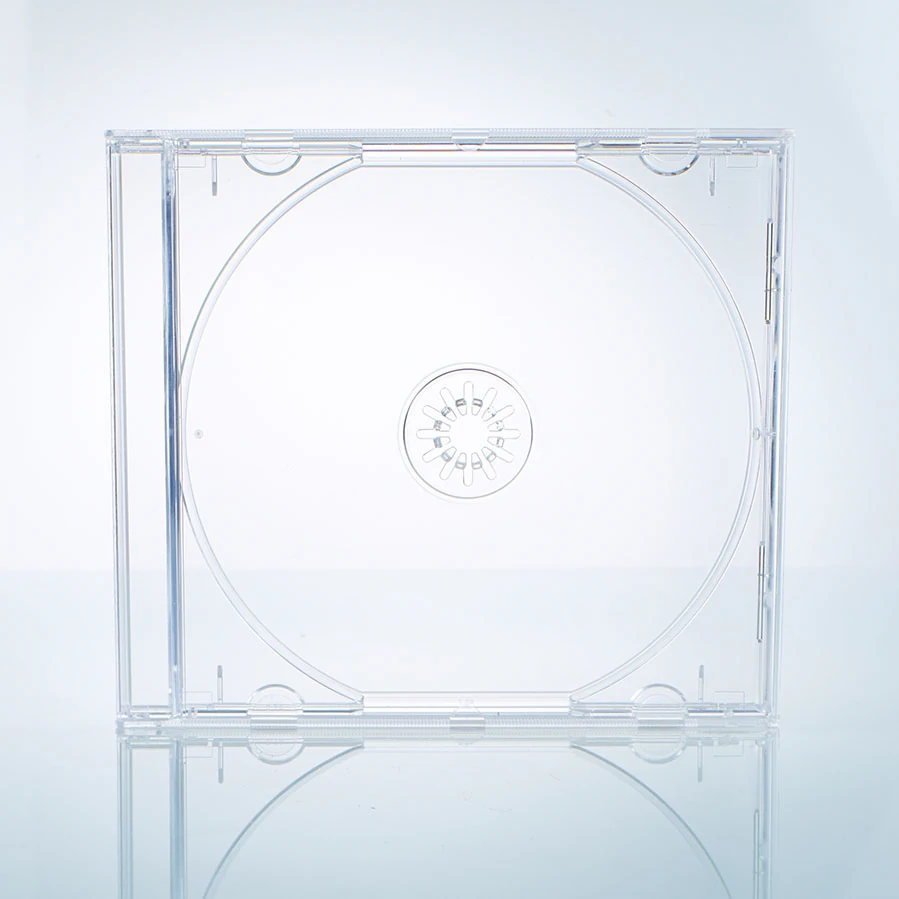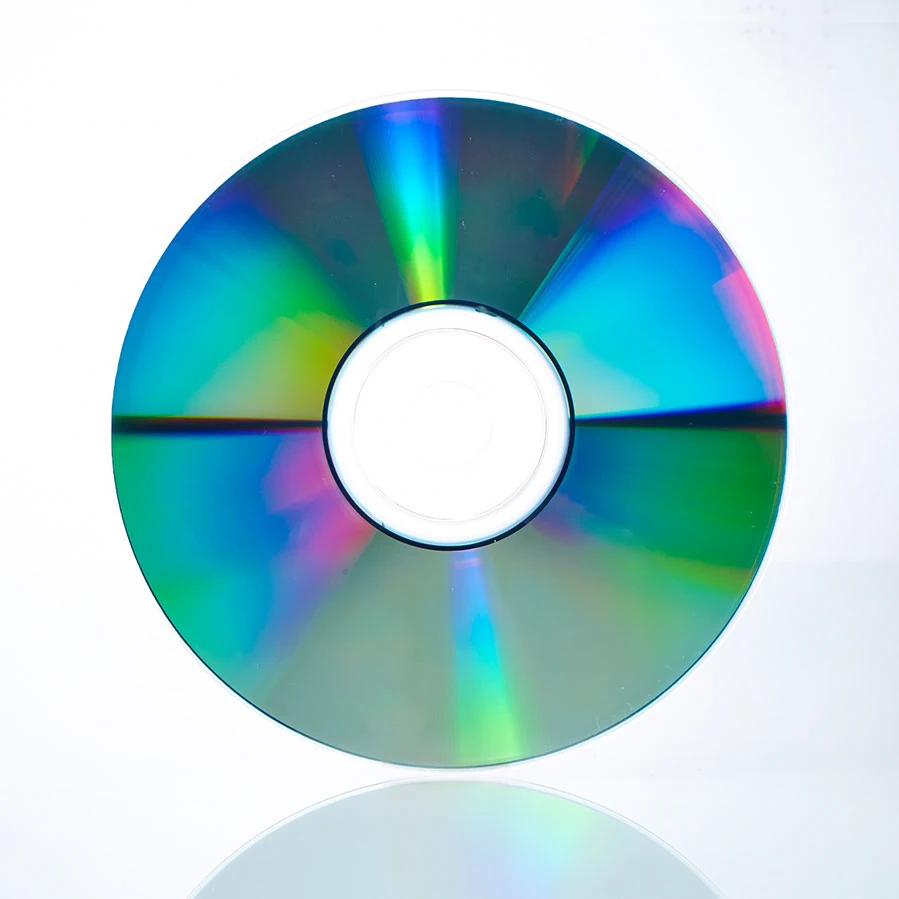John Eccles: Music for the Theatre "The Mad Lover or Acis and Galatea" auf CD
Music for the Theatre "The Mad Lover or Acis and Galatea"
Herkömmliche CD, die mit allen CD-Playern und Computerlaufwerken, aber auch mit den meisten SACD- oder Multiplayern abspielbar ist.
Lassen Sie sich über unseren eCourier benachrichtigen, falls das Produkt bestellt werden kann.
Lieder aus The Rape of Europa, The Ambitious Slave, Love betrayed, Don Quixote, Cyrus the Great, Fickle sheperdess
+Finger: Music for the Theatre "Love at a Loss" & "Alexander the Great"
- Künstler:
- Olivia Vermeulen, Capella Orlandi Bremen, Thomas Ihlenfeldt
- Label:
- CPO
- Aufnahmejahr ca.:
- 2017
- UPC/EAN:
- 0761203506125
- Erscheinungstermin:
- 24.5.2018
Ähnliche Artikel
Musik für das englische Theater
Unsere neue CD mit der Capella Orlandi vereint Schauspielmusiken von Gottfried Finger und John Eccles mit dessen Songs für die damals berühmte englische Bühnendarstellerin Anne Bracegirdle. Zu Ende des 17. Jahrhunderts war das Theaterleben Englands geprägt durch die Abwehrhaltung der Traditionalisten gegen die Einflüsse der italienischen Oper. Der englische Gegenentwurf, die english opera ist eine Verbindung des heroic play mit musikalischen Einschüben, das ging von einzelnen Songs, wie schon zu Shakespeares Zeiten, bis hin zu all-sung masques, kleinen Opern pastoralen Inhalts, Stücke im Stück mit einer allenfalls assoziativen Verbindung zur Rahmenhandlung. Die alte höfische Form der Masque ist im Theater der Restaurationszeit kaum mehr als ein Name, häufig synonym zu verstehen für interlude oder musical entertainment. Ein gutes Beispiel für die english opera ist “The Mad Lover”. Diese Komödie von John Fletcher von 1647 wird in unserer Einspielung durch Gesangseinlagen aus weiteren masques erweitert. Der große Erfolg, den Anne Bracegirdle mit den Werken von John Eccles hatte, führte dazu, dass sie danach ausschließlich dessen Kompositionen sang. Hatten die Texdichter einmal erkannt, dass man Stimmungen und wechselnde Leidenschaften durch Musik viel leichter zum Ausdruck bringen kann, lag es nahe, diese musikalischen Einlagen immer mehr von einem einfachen Lied zu einer kantatenähnlichen Form hin zu entwickeln. Die populärste Form wurde der sogenannte Mad Song. Leidenschaftlichste Gefühlsregungen konnten so sehr eindringlich geschildert werden.
Product Information
Music for the English Theater
Our new CD with the Capella Orlandi brings together stage music by Gottfried Finger and John Eccles, who wrote songs for the then famous English stage actress Anne Bracegirdle. At the end of the seventeenth century England’s theater world was shaped by the defensive stance of traditionalists toward influences from the Italian opera and the magnificence radiating from the French court. The English counterproposal, the »English opera,« was a combination of the »heroic play« with musical inserts ranging from individual songs, as already during Shakespeare’s time, to »all-sung masques,« little operas with pastoral content, works-within-the-work related at the most associatively to the framing action. During the Restoration period the old court form of the masque was hardly more than a name, often to be understood as synonymous with »interlude« or »musical entertainment.« The Mad Lover is a good example of the English opera. On our recording song inserts from other masques are added to this comedy by John Fletcher from 1647. Anne Bracegirdle was so very successful with compositions by John Eccles that she later exclusively sang works by him. Once the authors of the texts had recognized that moods and changing passions could be expressed much more easily with music, the logical move was to have these musical inserts increasingly develop from simple songs to a form similar to the cantata. The so-called mad song, in which the most impassioned feelings could be depicted very vividly, was the most popular form.
Rezensionen
klassik-heute.com 07/2018: »So entsteht ein abwechslungsreiches Porträt englischer Theatermusik aus der Zeit Henry Purcells. Die hervorragende Solistin Olivia Vermeulen und Thomas Ihlenfeldt mit der Capella Orlandi Bremen finden den perfekten Ton für diese Musik, der englische Stil der Purcell-Zeit wird ebenso deutlich wie die Ausdeutung der psychologischen Tiefe der einzelnen Stücke, die durch die hervorragenden Libretti vorgegeben werden.«Disk 1 von 1 (CD)
-
1 Love at a Loss: Ouverture (Music for the Theatre)
-
2 Love at a Loss: Jigg (Music for the Theatre)
-
3 The Rape of Europa: Still I'm grieving (Music for the Theatre)
-
4 Love at a Loss: Scotch Une (Music for the Theatre)
-
5 Love at a Loss: Hornpipe (Music for the Theatre)
-
6 The Ambitious Slave: why should the idle (Music for the Theatre)
-
7 Love at a Loss: Aire (Music for the Theatre)
-
8 Love betrayed: Orinda swear (Music for the Theatre)
-
9 Love at a Loss: Aire (Music for the Theatre)
-
10 Set for Mrs. Bracegidle: Strephon whose person
-
11 Love at a Loss: Round O (Music for the Theatre)
-
12 Love at a Loss: Bore (Music for the Theatre)
-
13 Alexander the Great: Overture (Music for the Theatre)
-
14 Alexander the Great: Aire (Music for the Theatre)
-
15 Alexander the Great: Gavott (Music for the Theatre)
-
16 Alexander the Great: Jigg (Music for the Theatre)
-
17 Don Quixote: I burn, my brain consumes to ashes
-
18 Alexander the Great: Entry (Music for the Theatre)
-
19 Alexander the Great: Bore (Music for the Theatre)
-
20 Alexander the Great: Minuett (Music for the Theatre)
-
21 Cyrus the Great: O take him gently (Music for the Theatre)
-
22 Alexander the Great: Aire (Music for the Theatre)
-
23 Alexander the Great: Round O Chacone
-
24 The fickle Sherperdess: Hast, give me wings
-
25 The Mad Lover: Ouverture (Music for the Theatre)
-
26 Acis and Galatea: Advance gay tenants (Music for the Theatre)
-
27 The Mad lover: Aire (Music for the Theatre)
-
28 Acis and Galatea: Come ye Nymphs (Music for the Theatre)
-
29 The Mad lover: Aire (Music for the Theatre)
-
30 Acis and Galatea: Know I've sworn (Music for the Theatre)
-
31 The Mad lover: Slow Aire (Music for the Theatre)
-
32 Wine and Love: Cease of Cupid (Music for the Theatre)
-
33 The Mad lover: Aire (Music for the Theatre)
-
34 Acis and Galatea: Must the a faithful lover go (Music for the Theatre)
-
35 The Mad lover: Jigg (Music for the Theatre)
-
36 Acis and Galatea: Who would be made a wife (Music for the Theatre)
-
37 The Mad lover: Aire (Music for the Theatre)
-
38 The Mad lover: Aire (Music for the Theatre)
-
39 Acis and Galatea: Ah, how lovely sweet and dear (Music for the Theatre)
-
40 The Mad lover: Aire (Music for the Theatre)
Mehr von John Eccles
-
Reginald Mobley - SolitudeCDAktueller Preis: EUR 19,99
-
Philip Langridge - Songs from the Pleasure GardenCDVorheriger Preis EUR 19,99, reduziert um 0%Aktueller Preis: EUR 5,99
-
Shani Diluka - RenaissanceCDAktueller Preis: EUR 19,99
-
The Mad Lover - Sonatas, Suites, Fantasias & various Bizzarie from 17th-Century EnglandCDAktueller Preis: EUR 19,99















